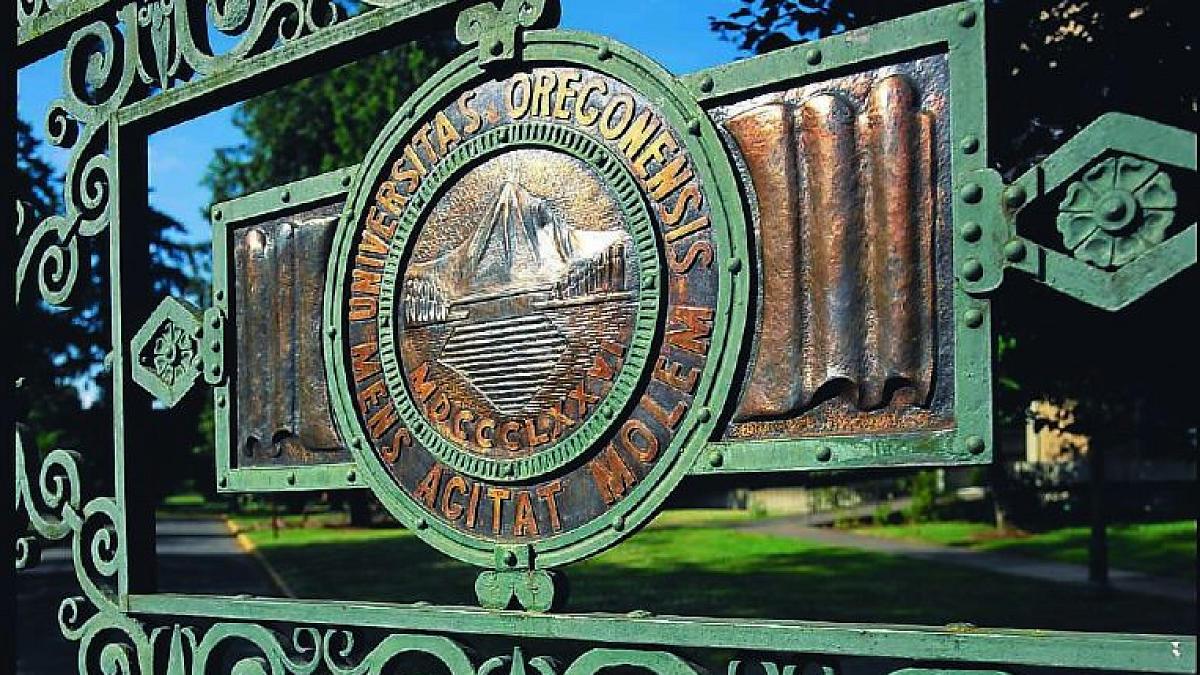President Michael H. Schill sent the following message to campus seeking additional input on tuition and fees for the 2018-19 academic year. The president is expected to make a written recommendation to UO Board of Trustees on Feb. 20 for consideration by the board at its regular meeting on March 2:
Last Friday, Provost Jayanth Banavar received the 2018–19 tuition and fee recommendation from the Tuition and Fee Advisory Board (TFAB). In response, he opened a public comment period for campus stakeholders and held a public forum that allowed him to hear directly from students. He and I greatly appreciated hearing from students at the forum, and thank everyone who invested time in this important process and shared their points of view.
The committee’s recommendations include a 2.84 percent increase for resident undergraduate students and a 2.49 percent increase for nonresident undergraduate students. For resident students, this represents an increase of $6 per credit hour, or $270 per year. Nonresident undergraduate students would see tuition rise by $18 per credit hour, or $810 annually. The TFAB recommendations also include a $7 increase in the student health center service fee, which will help expand health and counseling services for students.
After consulting with Provost Banavar, reading the online feedback, reviewing notes from the three TFAB forums, discussing tuition issues with the Associated Students Presidential Advisory Council, and listening at the forum, it is my current intention to support these TFAB proposals—with a few modifications—for the next academic year in my final recommendation to the Board of Trustees.
This tuition plan ensures that Oregonians have access to an affordable education at one of the nation’s top research institutions. In addition, the proposed tuition level will provide budgetary support to invest in new tenure-track faculty lines, make more than $2 million in strategic investments across campus, and uphold our compensation and benefit obligations to the UO’s dedicated faculty and staff.
It is important to recognize, however, that our budget remains vulnerable to unexpected fluctuations, including changes in enrollment, economic conditions, and state appropriations. Because of this budget fluidity, adopting this tuition level is something of a risk, and we could find ourselves having to seek additional revenue sources or cost reductions to meet the UO’s fiscal obligations. Nevertheless, in this era of rapidly increasing education costs, I believe that risk is worth taking.
Further, I intend to recommend to the Board of Trustees that the UO adopt a differential tuition plan for the Charles H. Lundquist College of Business. Under the proposal, students would be charged an additional $20 per credit hour for undergraduate courses taken in the business school. This would generate an estimated $1.4 million of net revenue annually for instruction, advising, tutoring, and career services at the college. The tuition proposal was discussed by student group leaders and the TFAB both this year and last. However, the TFAB has not made a recommendation for or against the proposal.
This type of tuition structure is similar to other schools in Oregon and among peer institutions in the Pac-12 and the Association of American Universities. Not having the resources from differential tuition places the business school at a competitive disadvantage and could, ultimately, threaten its accreditation. For that reason, I am inclined to recommend to the Board of Trustees that it adopt a proposal for differential tuition.
I recognize that even a modest tuition increase can be challenging for some, and we will work to ensure that the impact of this differential is not prohibitive to our most vulnerable students and their families. Therefore, it is my intention to alter the business school’s original proposal to permanently set aside 20 percent of the revenues generated by the differential tuition for financial aid targeted on the basis of need for business school students who pay the differential tuition. Also, the PathwayOregon program will continue to provide full tuition and fees to academically qualified, Pell Grant–eligible resident students who start as first-year students on our campus. In fact, one-third of in-state freshman receive the PathwayOregon benefit already, and we are committed to the growth of this program so that the doors of opportunity are open to Oregon’s best and brightest students regardless of their financial situation.
In a similar vein, I am happy to announce that, in addition to these recommendations, I intend to propose a reduction in the tuition differential for the Robert Donald Clark Honors College. Currently, the honors college has a tuition differential of $4,194 per year, which is among the highest in the country. A strategic budget advisory group comprising students, administrators, and members of the faculty and staff has recommended that we allocate resources to reduce the tuition differential to $2,700 per year. The Clark Honors College is one of the top 10 honors colleges in the country, and this reduction in differential tuition level will make it easier to recruit to the university high-achieving students from Oregon and around the nation. I am very pleased that we are able to make this change.
In closing, I remain dedicated to our shared goal of accelerating the progress we have made recently, despite constrained budgets, in enhancing excellence in teaching, research, and support for student access and success programs. We must remain vigilant in our pursuit of excellence in all that we do at the UO.
Please provide any feedback on my proposals outlined here via this online form. I welcome your input before I submit my recommendation to the Board of Trustees on Tuesday, February 20. The on-line comments will remain open until 5:00 p.m., Wednesday, February 28, for the Board to review and consider.
Thank you.
Michael H. Schill
President and Professor of Law


